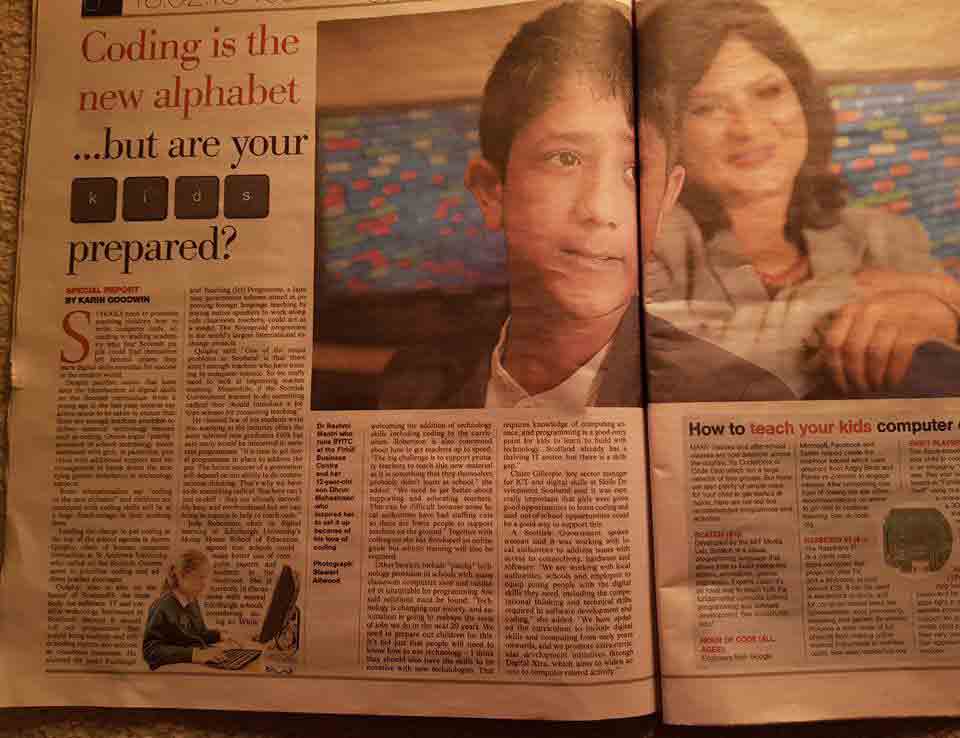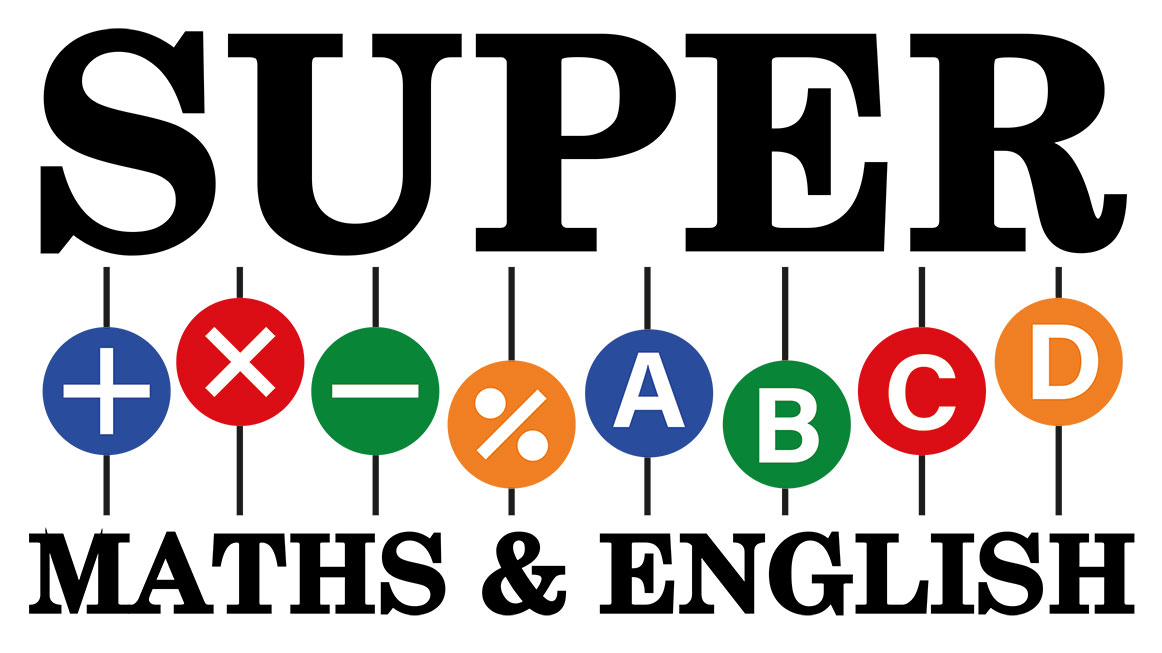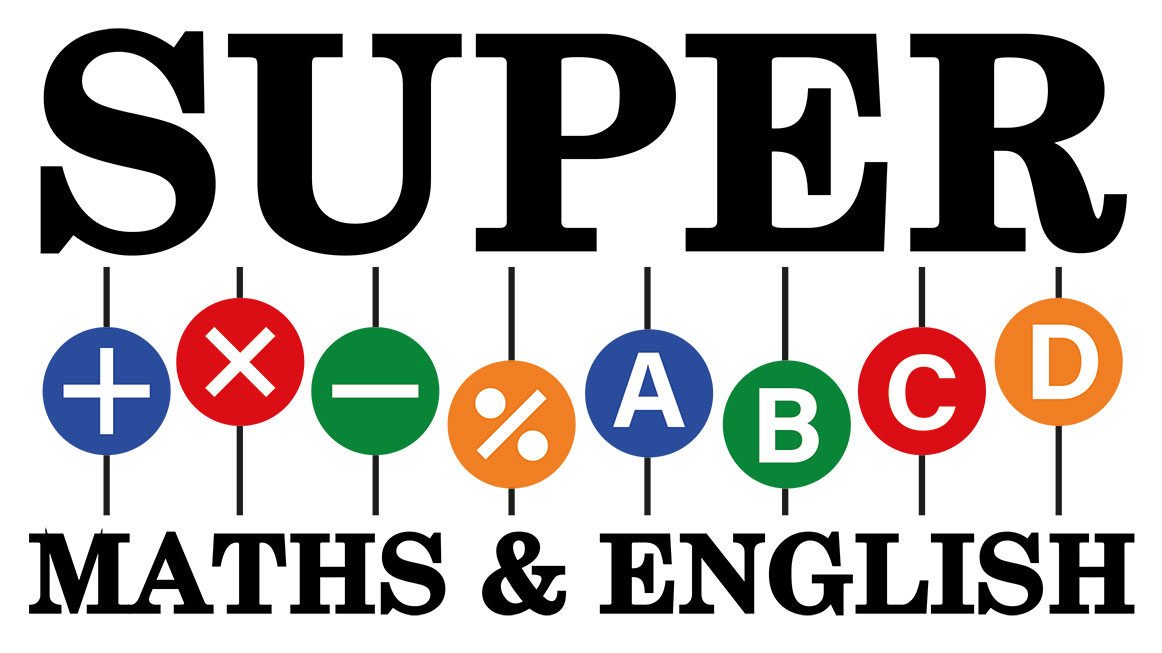
The following is from an article titled “Coding is the new alphabet … but are your kids prepared?” published in the Herald Scotland by Karin Goodwin.
Click Here to read the Article on the Herald Scotland website.
SCHOOLS need to prioritise teaching children how to write computer code according to leading academics who fear Scottish pupils could find themselves left behind unless they learn digital skills essential for success in the modern world.
Despite positive moves that have seen the introduction of digital skills on the Scottish curriculum from a young age in the last year, experts say action needs to be taken to ensure that there are enough teachers available to deliver essential technology lessons such as coding program kids. Others argue “patchy” provision of school technology needs addressed with girls, in particular, provided with additional support and encouragement to break down the worrying gender imbalance in technology subjects.
Some educationalists say ‘coding in the new alphabet’ and children not equipped with coding skills will be at a huge disadvantage in their working lives.
Leading the charge to put coding at the top of the school agenda, is Aaron Quigley, chair of human computer interaction at St Andrews University, who called on the Scottish Government to prioritise coding, and address teacher shortages.
Quigley, who is also on the board of ScotlandIS, the trade body for software, IT and creative technology businesses in Scotland, claimed it should roll-out programmes that would bring students and other coding experts into schools as classroom assistants. He claimed the Japan Exchange and Teaching (JET) Programme, a Japanese Government scheme aimed at improving foreign language teaching by paying native speakers to work alongside classroom teachers, could act as a model. The 30 year old programme is the world’s largest international exchange projects.
Quigley said: “One of the major problems in Scotland is that there aren’t enough teachers who have training in computer science. So we really need to look at improving teacher training. Meanwhile if the Scottish government wanted to do something radical they should introduce a Jet type scheme for computing teaching.”
He claimed few of his students went into teaching as industry was offers the most talented new graduates £60k but said many would be interested in assistant programmes. “It is time to get novel programmes in place to address the gap. The future success of a generation will depend on our ability to do computational thinking. That’s why we have to do something radical. Teachers can’t just re-skill – they are already incredibly busy and overburdened but we can bring in experts to help to teach code.”
Judy Robertson, chair in digital learning at Edinburgh University’s Moray House School of Education, agreed that schools could make better use of computer experts and students in the classroom. She is currently in discussions with several Edinburgh schools considering doing so.
While welcoming the addition of technology skills including coding to the curriculum, Robertson said she is also concerned about how to get teachers up-to-speed. “The big challenge is to support primary teachers to teach this new material as it is something that they themselves probably didn’t learn at school,” she added. “We need to get better about supporting and educating teachers. This can be difficult because some local authorities have had staffing cuts so there are fewer people to support teachers on the ground.” Together with colleagues she has developed an online guide but admits training will also be required.
Other barriers include “patchy” technology provision in schools with many classroom computers slow and outdated or unsuitable to programming. She said solutions must be found: “Technology is changing our society, and automation is going to reshape the sorts of jobs we do in the next twenty years. We need to prepare our children for this. It’s not just that people will need to know how to use technology – I think they should also have the skills to innovative with new technologies. That requires knowledge of computing science, and programming is a good entry point for kids to learn to build with technology. Scotland already has a thriving IT sector, but there is a skills gap.”
Claire Gillespie, key sector manager for ICT and digital skills at Skills Development Scotland said it was especially important that girls were given good opportunities to learn coding and said out of school opportunities could be a good way to support this.
A Scottish Government spokeswoman said it was working with local authorities to address issues with access to connectivity, hardware and software: “We are working with local authorities, schools and employers to equip young people with the digital skills they need, including the computational thinking and technical skills required in software development and coding,” she added.
“We have updated the curriculum to include digital skills and computing from early years onwards, and we promote extra-curricular development initiatives through Digital Xtra, which aims to widen access to computer-related activity.”
THE PRE-TEEN SCOTS CODERS PROGRAMMING THE SPACE STATION
When Robert Fraser set up volunteer-run afterschool club Code Inverness in his home town after discovering there was nothing suitable for his programming-mad son Wojciech, now 11, he didn’t expect any of the kids in his care to end up creating programmes for the International Space Station. But three years after setting up, that’s exactly what this talented bunch of 10-13 year-olds are doing. The club’s “break-away” group, Rasberry Jam, had already taken on advanced challenges such as programming robots. But even some of them were taken aback by Fraser’s suggestion that they write a programme to enter into the Europe-wide Astro Pi, an annual science and coding program kids competition for school pupils to create code for the International Space Station.
On Tuesday they will find out if their code will be one of those taken forward to run on the Nasa space research lab. Fraser said: “We were short of time so we broke our programme into challenges to write 8-10 lines of code for basic functions.” After six hours, with all the parts complete, Fraser was able to put the pieces together to create a programme that will take high definition images and record sensor data such as humidity, pressure, and speed. Space station co-ordinates can be calculated while a basic algorithm works out whether it is over land or sea, based in the proportion of green or blue from the image.
“The kids are really excited,” he said. “I’m not sure it’s really sunk in yet that a programme they wrote might run on the ISS. It’s real world stuff. We can say to them this is what is involved in working for Nasa – you write a programme, you run it and then you analyse the data. They are talented kids.”
Dr Rashmi Mantri, founder of British Youth International College (BYITC) which offers after school classes in coding program for kids 9-13-year-olds, is also blown away by the ability of many of the young people she works with. She was inspired to leave her job at the University of the West of Scotland to set up the college addressing the skills gap she saw in her son Dhruv Maheshwari’s education. Now the 12-year-old has built the company website and writes fluent code. The weekly kids coding program classes and holiday clubs have been so popular that the school is launching an Edinburgh branch today. “Some of the kids are very advanced,” said Mantri. “They are making Java-based mobile apps and they are excited to be using a language used by “real” programmes. A lot of the children here have parents with an IT background who can see the importance of this for their children’s future. But for the kids it is just fun to code.”We offer best Online Coding program kids to Learn Coding from Coding Experts.
Stephen Harris, library development officer for Midlothian Council, has also seen the benefits. Like other parents it was when his daughter enjoyed a taster session at school but had no follow-up offered that he was inspired to push through a pilot project in two local libraries. It took off and has been rolled out, run by paid teachers but supported by volunteers. Kids learn through a variety of task from creating their own animations to programming robots and learn a variety of languages – Scratch, Python, and HTML – along with way. “It’s an areas where employers are going to be crying out for this,” he said. “The demand is only going to get greater.”
Lorna Gibson, Scotland co-ordinator of Code Club, agreed. In the last few years she has seen the interest in coding explode. In 2013 the number of free after-school code clubs run by the organisation was “in the low double figures”. Now it has a network of over 600 groups, with an average of 15 members, and is represented in all 32 local authorities. Children work through tasks in visual programmes like Scratch, dragging and dropping onscreen lego bricks, or programme simple games to test reaction times before moving on to more advanced tasks in Python or using programmes like Sonic Pi to programme music. Everything is open source and available online.
She claimed that although coding will make young people highly employable in the longer term it also helps with their every day learning. “I am off the Steve Jobs mindset that ‘coding teaches you how to think’,” she said. “The kids are so busy that they have no idea of all the skills they are learning in terms of problem solving, deposition, sequencing, collaboration and communication. These are life skills.”



